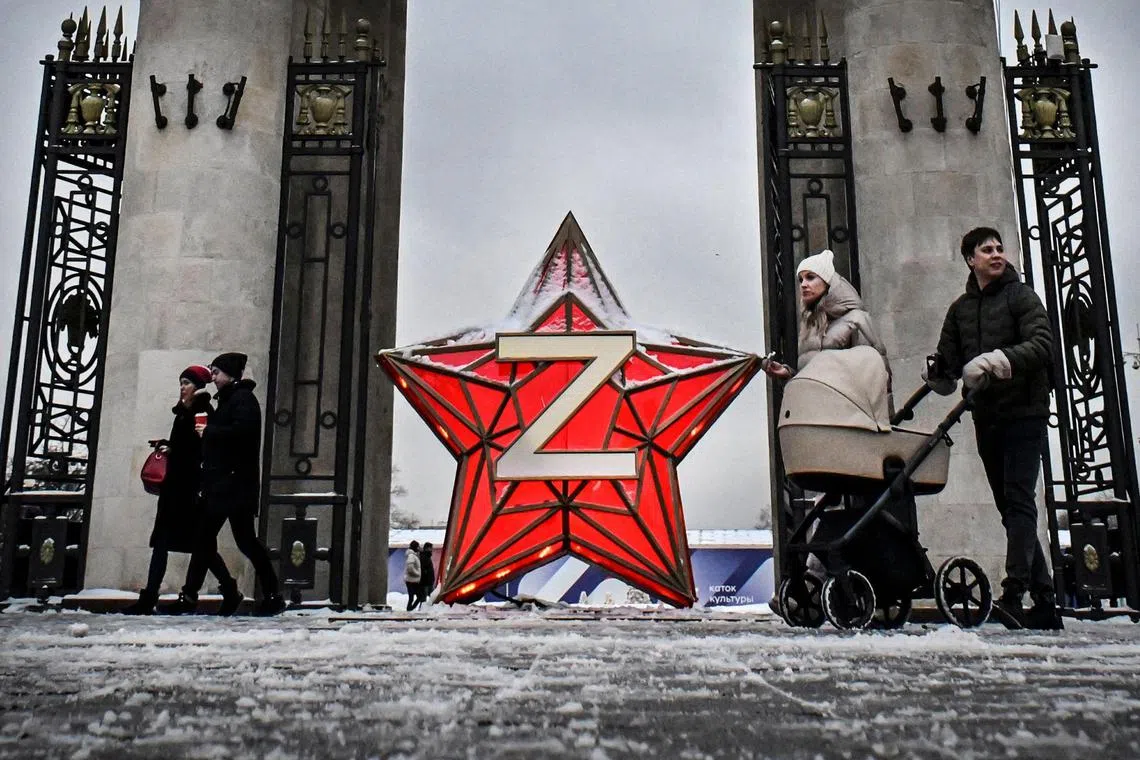Russia’s economy faring better than expected under Western sanctions – for now
Sign up now: Get ST's newsletters delivered to your inbox

The Kremlin Star bearing the letter Z, a tactical insignia of Russian troops in Ukraine, at Gorky Park in Moscow on Dec 29.
PHOTO: AFP
New York - Russia’s economy saw a more modest contraction than anticipated over the past 11 months, according to data released by the country’s statistics agency, although experts warned that it was too soon to say how Moscow would withstand the full impact of some of the West’s toughest moves against Russian oil.
Russian Finance Minister Anton Siluanov said on Thursday that Russia’s gross domestic product (GDP) would decline 2.7 per cent by the end of the year, the state news agency Tass reported.
Such a decline would remain short of the 3.4 per cent drop that the International Monetary Fund predicted for Russia in 2022 – a forecast that grew progressively less grim as the year went on. Earlier forecasts made shortly after the Russian invasion of Ukraine
Russian Prime Minister Mikhail Mishustin said on Wednesday that Russia’s economy had defied more negative forecasts from Western analysts, citing a roughly 2 per cent decline in GDP from January through November compared with the same period in 2021.
Experts, however, said Russia’s economic outlook could become darker in the coming months, when the full impact of the European Union’s embargo on Russian oil and the price cap initiative led by the US
Mr Mishustin is correct about beating Western economic predictions, but only “technically, at the moment, in the narrow sense”, said Dr Michael Bernstam, a research fellow at the Hoover Institution at Stanford University. Data from December, he said, could be a “watershed moment” for the Russian economy.
There are already signs in the current data from Russia’s statistics agency, Rosstat, that belie murky long-term prospects, Dr Bernstam said. Retail sales, for example, dropped 7.9 per cent year on year in November, indicating a significant slump in consumer demand.
First Deputy Prime Minister Andrey Belousov acknowledged concerns about consumer demand on state television this week. He described the consumer market as being nearly stagnant and said helping it recover would be a government priority.
Rosstat data also showed that Russia hit a record-low unemployment rate of 3.7 per cent in November, after a warning from the country’s central bank that the labour market was limiting the economy’s ability to expand production. NYTIMES


